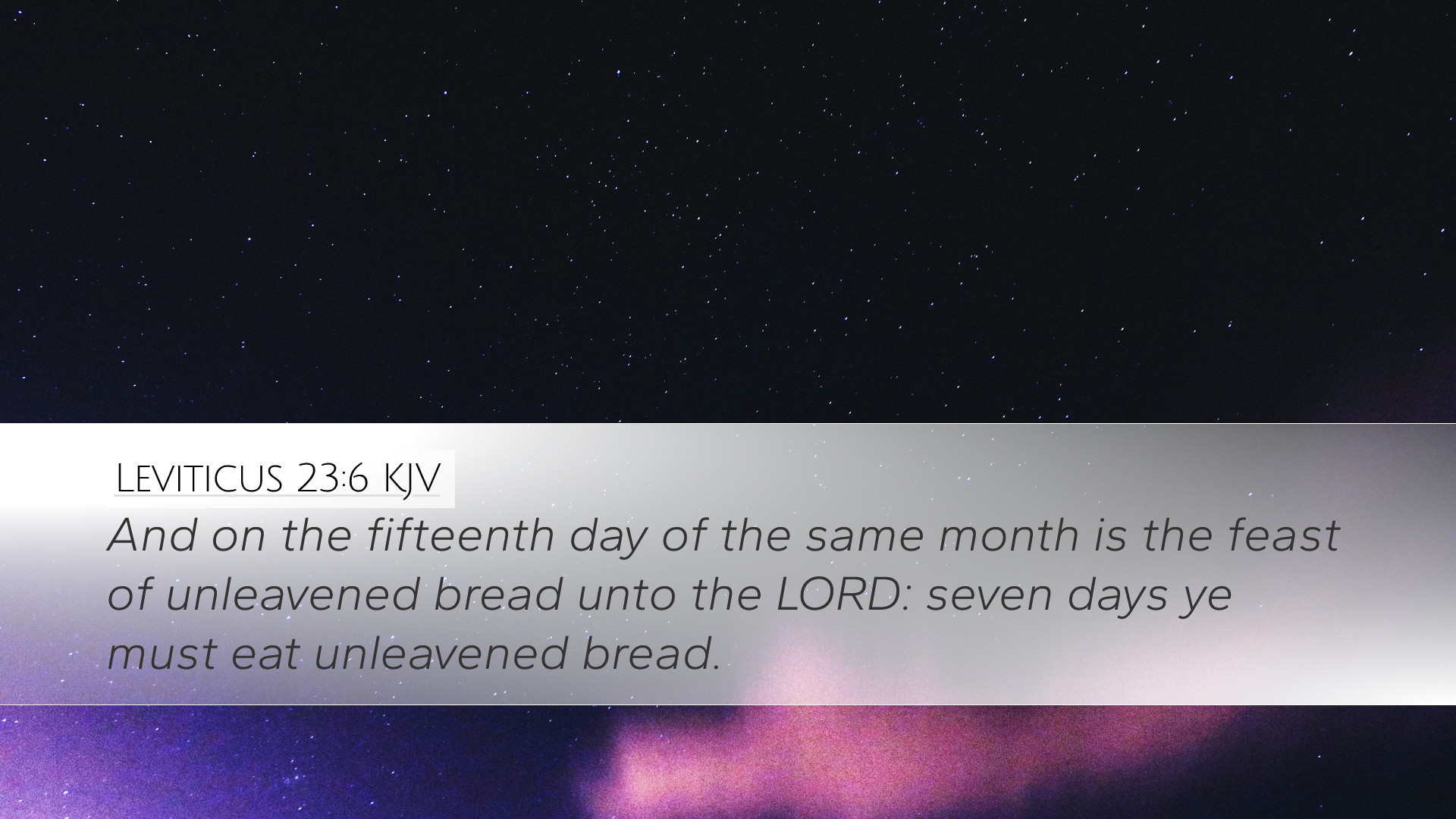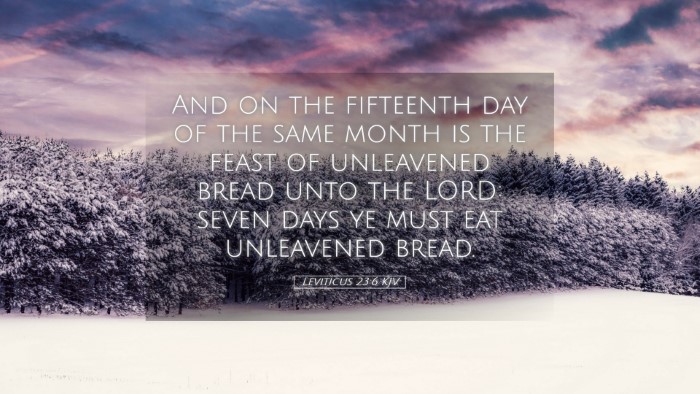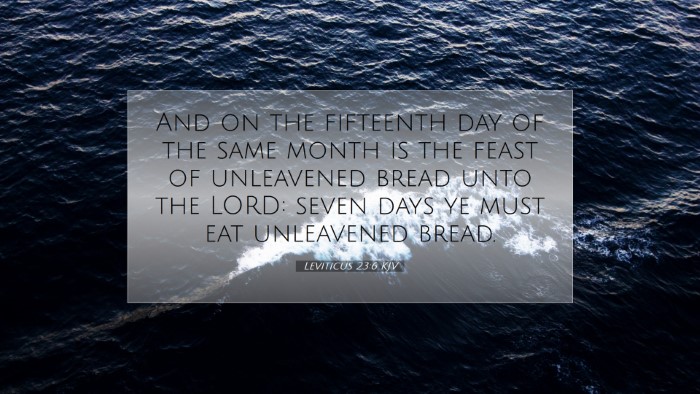Commentary on Leviticus 23:6
Verse Reference: Leviticus 23:6 - "And on the fifteenth day of the same month is the feast of unleavened bread unto the Lord: seven days ye must eat unleavened bread."
Introduction
The Feast of Unleavened Bread, as outlined in Leviticus 23:6, is a key festival in the Jewish religious calendar, rich in theological significance. This verse marks a transition from Passover into a week-long observance that holds profound implications for God's people, both in historical and spiritual contexts.
Historical Context
The Israelites were commanded to observe the Feast of Unleavened Bread as a commemoration of their hasty departure from Egypt. This festival directly follows Passover, emphasizing the liberation from bondage and the divine act of deliverance.
-
Matthew Henry notes that this feast connects to the narrative of the Exodus, illustrating God’s power in freeing His people from slavery.
-
Albert Barnes emphasizes the importance of these days of unleavened bread, indicating they serve as a period of reflection on God's faithfulness and provision.
-
Adam Clarke adds that unleavened bread symbolizes purity, representing the need for the people to purge sin from their lives as they celebrate their freedom.
Theological Significance
The command to eat unleavened bread for seven days carries rich theological meaning, symbolizing the purity and holiness expected from God's people.
-
Symbolism of Leaven: In biblical tradition, leaven often represents sin and corruption. The removal of leaven during this feast signifies a covenantal call to holiness. As Henry articulates, it is essential for believers to recognize this call as they celebrate their own spiritual liberation through Christ.
-
Implications for Believers: This feast points to the necessity of living in a state of continual sanctification. Barnes comments that the dietary restriction against leaven serves as a metaphor for the Christian's struggle against sin. It encourages believers to examine their lives and strive for higher moral standards.
-
Christ as Our Passover: Clarke links the observance of Unleavened Bread with the New Testament understanding of Christ as our Passover lamb. Just as the Israelites had to remove leaven, Christians are called to eliminate sin from their lives, reflecting the transformative power of Christ's sacrifice.
Practical Applications
The Feast of Unleavened Bread provides significant lessons for contemporary believers. By recognizing the call to purity and holiness, the church can live out its identity authentically.
-
Self-Examination: Just as the Israelites took time to examine their homes for leaven, Christians should practice self-examination, allowing the Holy Spirit to reveal areas in their lives that need purification.
-
Community Reflection: The communal nature of the feast encourages fellowship and shared reflection among believers. Barnes encourages that this collective remembrance can strengthen the church's unity and purpose.
-
Celebration of Deliverance: Like the Israelites celebrated their freedom from Egypt, Christians should celebrate their freedom from sin, acknowledging that their salvation invites them into a life of holiness.
Conclusion
Leviticus 23:6 invites readers to appreciate not only the ritual practices of ancient Israel but also the spiritual truths that these rituals signify. The Feast of Unleavened Bread serves as a reminder of God's deliverance, a call to holiness, and a reflection of Christ's ultimate sacrifice. As pastors, students, theologians, and scholars engage with this text, they are encouraged to consider its implications for both individual lives and the church as a whole.


